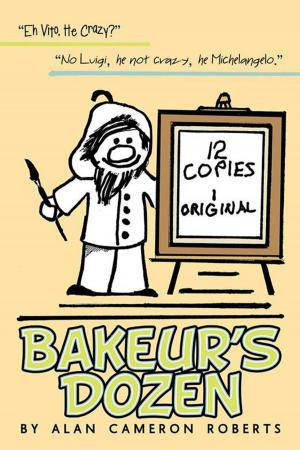| Author: | Carl Hitchens | ISBN: | 9781450276320 |
| Publisher: | iUniverse | Publication: | December 2, 2010 |
| Imprint: | iUniverse | Language: | English |
| Author: | Carl Hitchens |
| ISBN: | 9781450276320 |
| Publisher: | iUniverse |
| Publication: | December 2, 2010 |
| Imprint: | iUniverse |
| Language: | English |
Inner teacher, "Warrior," a Nanticoke warrior of the seventeenth century, shares his wisdom with his grandson, and in so doing reveals the mystery of the warrior spirit. It is through the inner-warrior that we self-actualize the inner life dreamed into the outer life lived. It is through embracing our warrior nature that we conquer self-delusion and self-doubt and realize the ultimate truth: We are Warrior. We are the noble being we always hoped to be. Warrior'sspiritual perspective on war, life, death, the meaning of existence addresses those fundamental questions of human origin and purpose. HIs view is both insightful and honoring of life lived and sacrificed in pursuit of higher meaning. Drawing on spiritual science and "warrior perspective," he navigates the reader through the inner workings of the human condition, enfolding within it war as an ironic outcropping of consciousness raging for fuller integration. As a Marine Corps veteran of an unpopular and divisive war, Carl Hitchens contends that "Sitting with Warrior" chronicles not only his journey, but Americas as well. By sitting and listening to Warriors wisdom, he has recovered lost parts of himself. This gives America hope for stepping out of the long shadow of Vietnam that today stretches over Iraq and Afghanistan. Hope that by sitting with Warrior and his unifying truth, America can heal her old wounds. Hope that she can draw from her pluralism and diversity unity rather than division"out of many, one." To Educators, Historians, and Mental Health Practitioners More than story, more than memoir: Sitting with Warrior is an authentic peep inside the combat mind experience of those who go to war. It looks at war and warrior-ship in the full circle of cultural and nationalistic themes, and social, psychological, and spiritual forces that form and shape those going and returning from lethal combat. It is therefore relevant to any historical treatment of war and its effects from readjustment challenges, to interrelationship struggles to PTSD to spiritual healing.
Inner teacher, "Warrior," a Nanticoke warrior of the seventeenth century, shares his wisdom with his grandson, and in so doing reveals the mystery of the warrior spirit. It is through the inner-warrior that we self-actualize the inner life dreamed into the outer life lived. It is through embracing our warrior nature that we conquer self-delusion and self-doubt and realize the ultimate truth: We are Warrior. We are the noble being we always hoped to be. Warrior'sspiritual perspective on war, life, death, the meaning of existence addresses those fundamental questions of human origin and purpose. HIs view is both insightful and honoring of life lived and sacrificed in pursuit of higher meaning. Drawing on spiritual science and "warrior perspective," he navigates the reader through the inner workings of the human condition, enfolding within it war as an ironic outcropping of consciousness raging for fuller integration. As a Marine Corps veteran of an unpopular and divisive war, Carl Hitchens contends that "Sitting with Warrior" chronicles not only his journey, but Americas as well. By sitting and listening to Warriors wisdom, he has recovered lost parts of himself. This gives America hope for stepping out of the long shadow of Vietnam that today stretches over Iraq and Afghanistan. Hope that by sitting with Warrior and his unifying truth, America can heal her old wounds. Hope that she can draw from her pluralism and diversity unity rather than division"out of many, one." To Educators, Historians, and Mental Health Practitioners More than story, more than memoir: Sitting with Warrior is an authentic peep inside the combat mind experience of those who go to war. It looks at war and warrior-ship in the full circle of cultural and nationalistic themes, and social, psychological, and spiritual forces that form and shape those going and returning from lethal combat. It is therefore relevant to any historical treatment of war and its effects from readjustment challenges, to interrelationship struggles to PTSD to spiritual healing.















